Understanding Dog Anxiety and the Role of Crates
When you first bring your adorable puppy or adopted dog home, their playful and affectionate nature is a joy to behold.
However, signs of anxiety may soon surface.
Perhaps you return home to a scene reminiscent of a cyclone’s aftermath, or neighbors mention distressing howling sounds during your absence.
This situation often leads to a crucial question: Is there an ideal crate for easing a dog’s anxiety?
The Ideal Crate for Anxiety: It’s About What Works Best!
Strategic Placement: Key to Comfort and Security
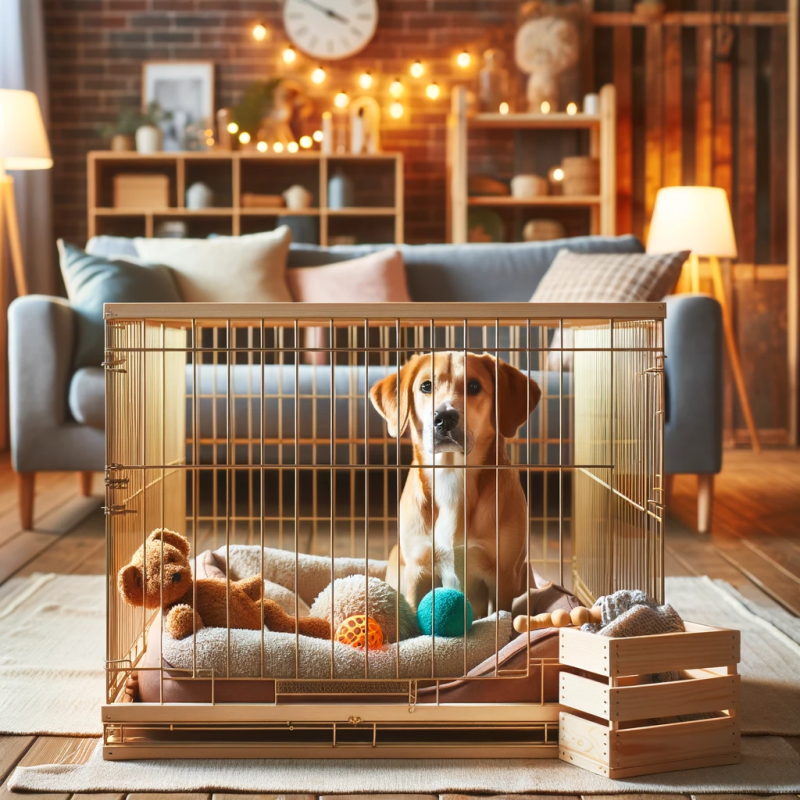
Dogs, by nature, are social creatures who crave involvement in daily activities.
You might initially consider placing the crate in your bedroom, offering a sense of closeness at night.
However, consider where you spend the most time during the day.
Ideally, the crate should be in a high-traffic area of your home, ensuring your dog doesn’t feel isolated or punished.
Visibility is crucial, so avoid covering the crate – your dog should be able to observe the household’s activities.
Creating a Welcoming Space
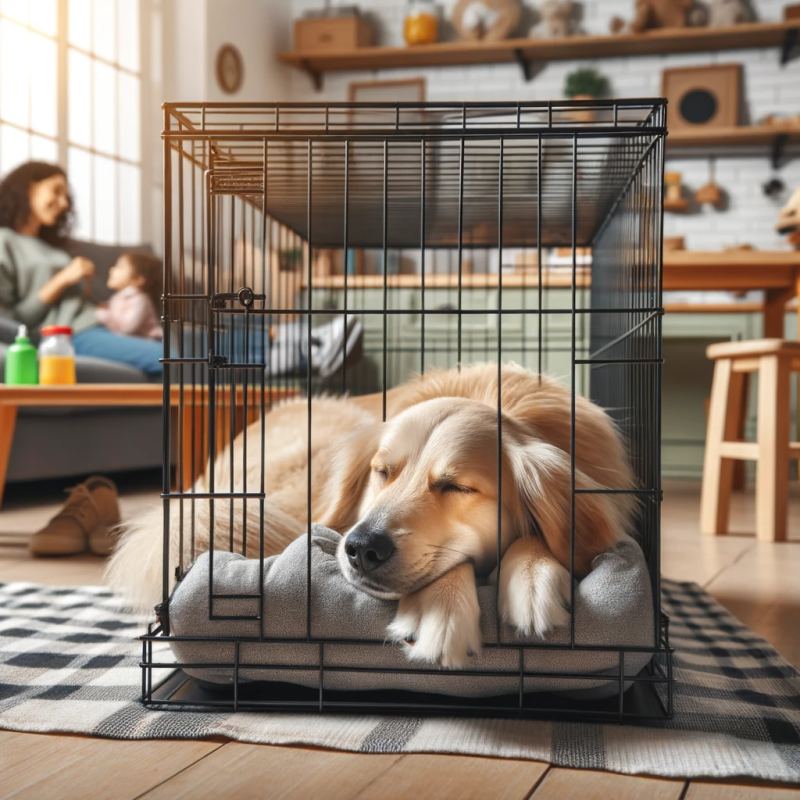
Imagine being confined to a space with minimal comfort – not very appealing, right?
Your dog deserves a comfortable environment too.
Enhance the crate with a soft blanket, a chew toy, and perhaps a cozy pillow.
However, ensure your dog is not prone to chewing and potentially swallowing soft items.
A well-appointed crate can significantly reduce anxiety, offering a safe and inviting haven.
Gradual Training: Building Up to Longer Periods
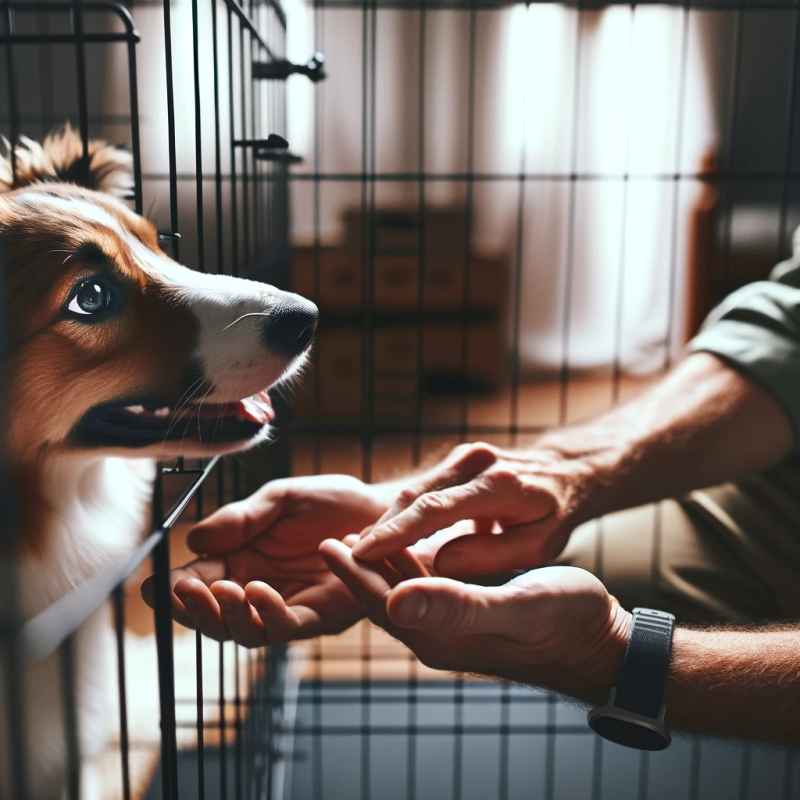
Before leaving your dog alone for extended periods, it’s essential to conduct gradual training.
Start with short durations and progressively increase them.
Be prepared for some initial resistance and crying, but stay firm.
This process aims to acclimatize your dog to its new space, eventually making it a comfortable and anxiety-free zone.
The Positive Outcomes of Proper Crate Training
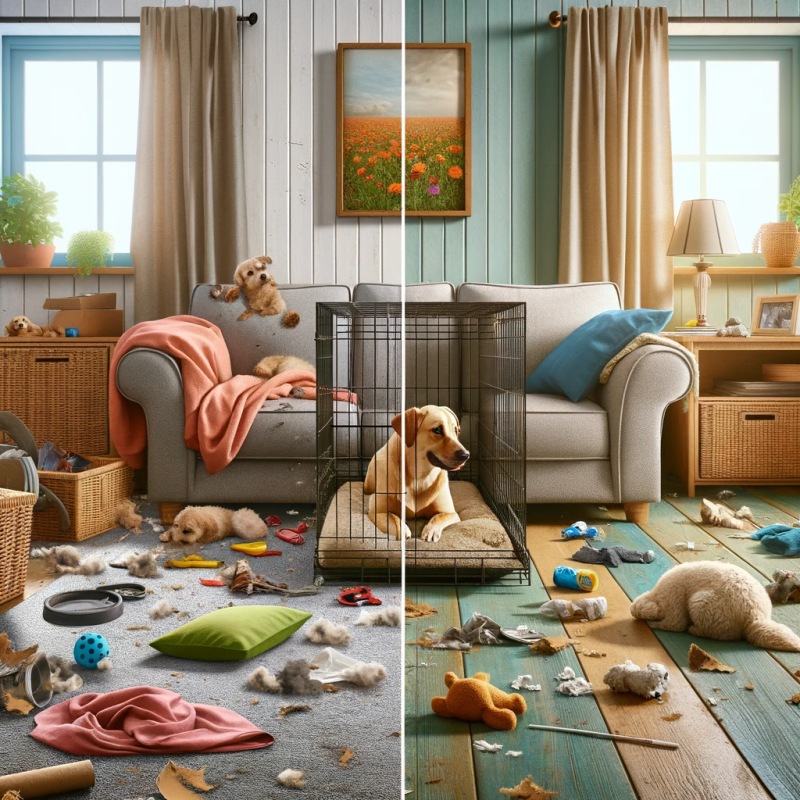
Once your dog adapts to its new crate, you’ll likely notice a decrease in anxiety-related behaviors.
Gone are the days of returning home to a disaster zone or finding your favorite shoes turned into chew toys.
Your dog will cherish its personal space, offering both of you peace of mind.
We Want to Hear From You!

Every dog is unique, and what works for one may not work for another.
Share your experiences and tips on easing dog anxiety with crates in the comments section below.
Your insights could be invaluable to fellow pet owners navigating similar challenges.
Remember, the journey to finding the perfect crate for your anxious dog is a combination of understanding, patience, and love.

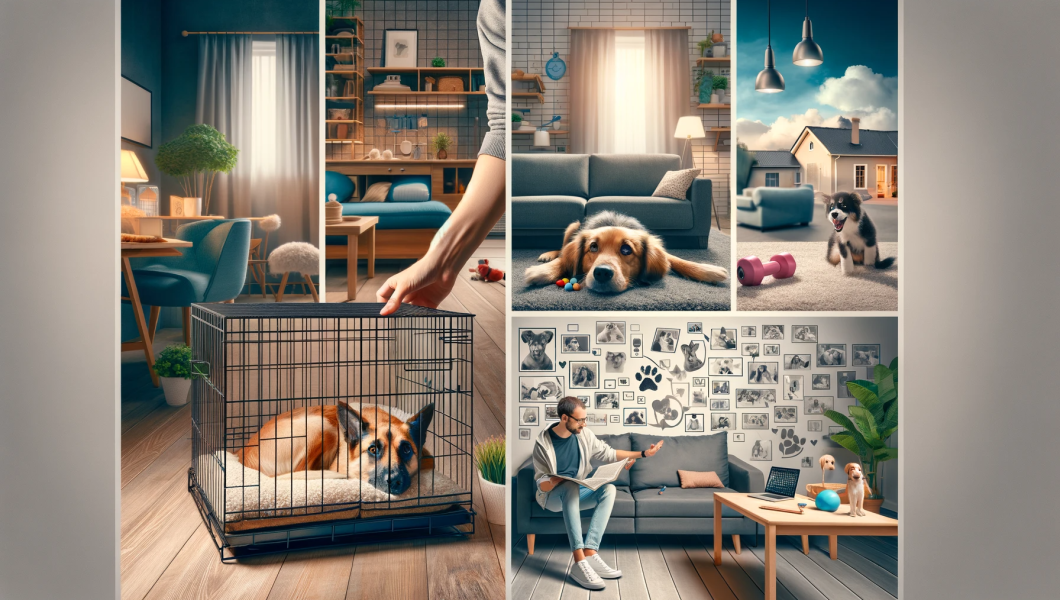
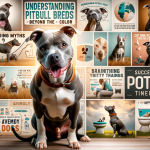



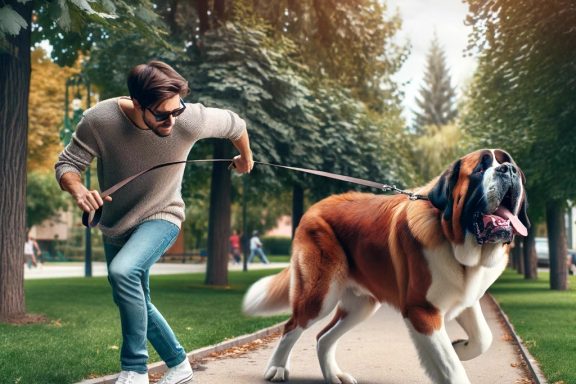
No Comments